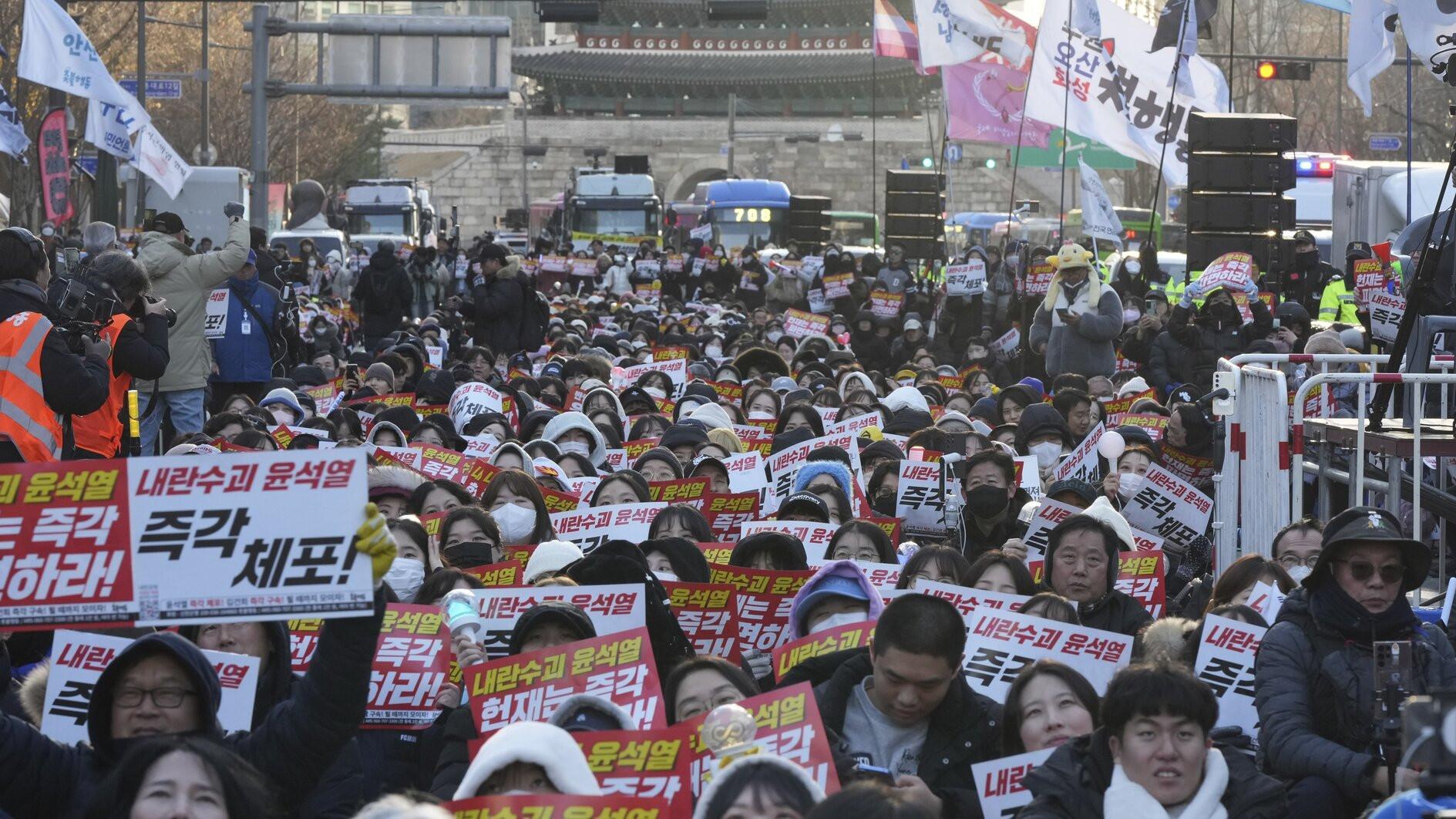
South Korea's swift rebuke of martial law and removal of President Yoon Suk Yeol from office have been hailed in the country as evidence of the strength of its young democratic institutions.
Yoon's bid to suspend civilian rule and claims of a communist conspiracy harkened back to the dark days of dictatorship in South Korea four decades ago, when human rights abuses by military and security forces were widespread.
But the fallout from the failed attempt was immediate and South Korea's institutions kicked in: Yoon's inner circle were swiftly placed under police investigation and hauled before a parliament demanding answers.
Lawmakers rapidly launched impeachment proceedings against Yoon for his alleged "insurrection" and attempt to override the country's democratic constitution.
And on Dec. 14 he was removed by a secret ballot in a tense vote in the ornate parliamentary chamber.
The vote sparked wild jubilation on the streets of Seoul. Opinion polls suggested more than 75 percent of the public supported impeachment.
"This situation has provided the Korean people with an invaluable lesson on what democracy truly entails and how our democratic republic can be protected," lawyer Yun Bok-nam, president of Lawyers for a Democratic Society, told AFP.
"For the people this has been a transforming experience in building a more powerful democratic consciousness among them."
Bordering isolated, totalitarian North Korea and separated by a strip of sea from vast and authoritarian China, South Korea has for years been a posterchild for boisterous, democratic rule in East Asia.
Forged in the chaos and bloodshed of the 1980s anti-dictatorship movement, from which many of the country's current crop of politicians emerged, South Koreans have long sought to challenge their leaders in raucous street protests and vibrant displays of dissent.
And its strong rebuke of authoritarian rule this week again saw it buck a global trend towards autocratic politics, from the reelection this year of Donald Trump in the United States to a surge in right-wing populism in Europe.
That trend has seen U.N. Secretary-General Antonio Guterres warn that democratic values are "under assault" globally, pointing to rising attacks and restrictions on media and human rights defenders.
But for many South Koreans, there was never any doubt that the country would turn back the clock.
"What we have witnessed over the past two weeks is a testament to the fact that it is now impossible to regress the country to its authoritarian past," said Bae Kang-hoon, co-founder of political think tank Valid.
"There is a red line drawn in the minds of the Korean people: That the country should never regress back to military rule," Bae told AFP.
"Yoon's martial law proclamation clearly crossed that line for many."